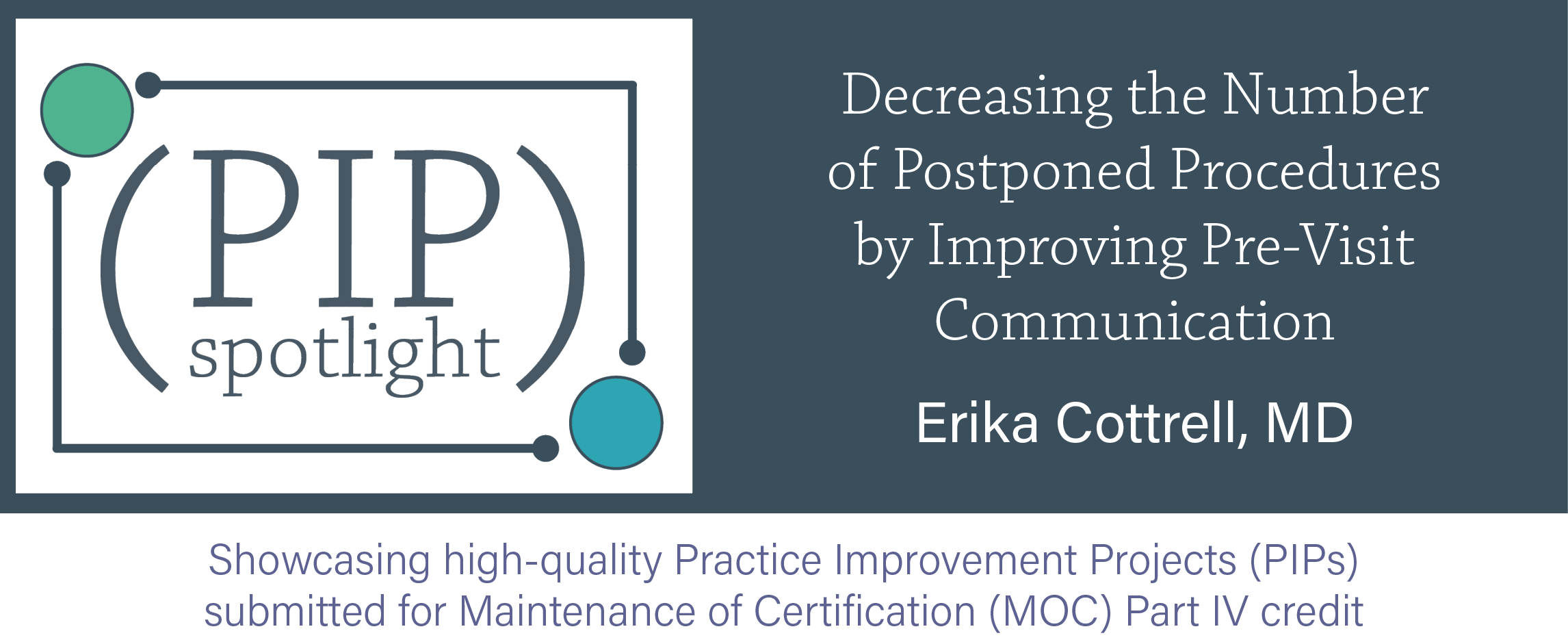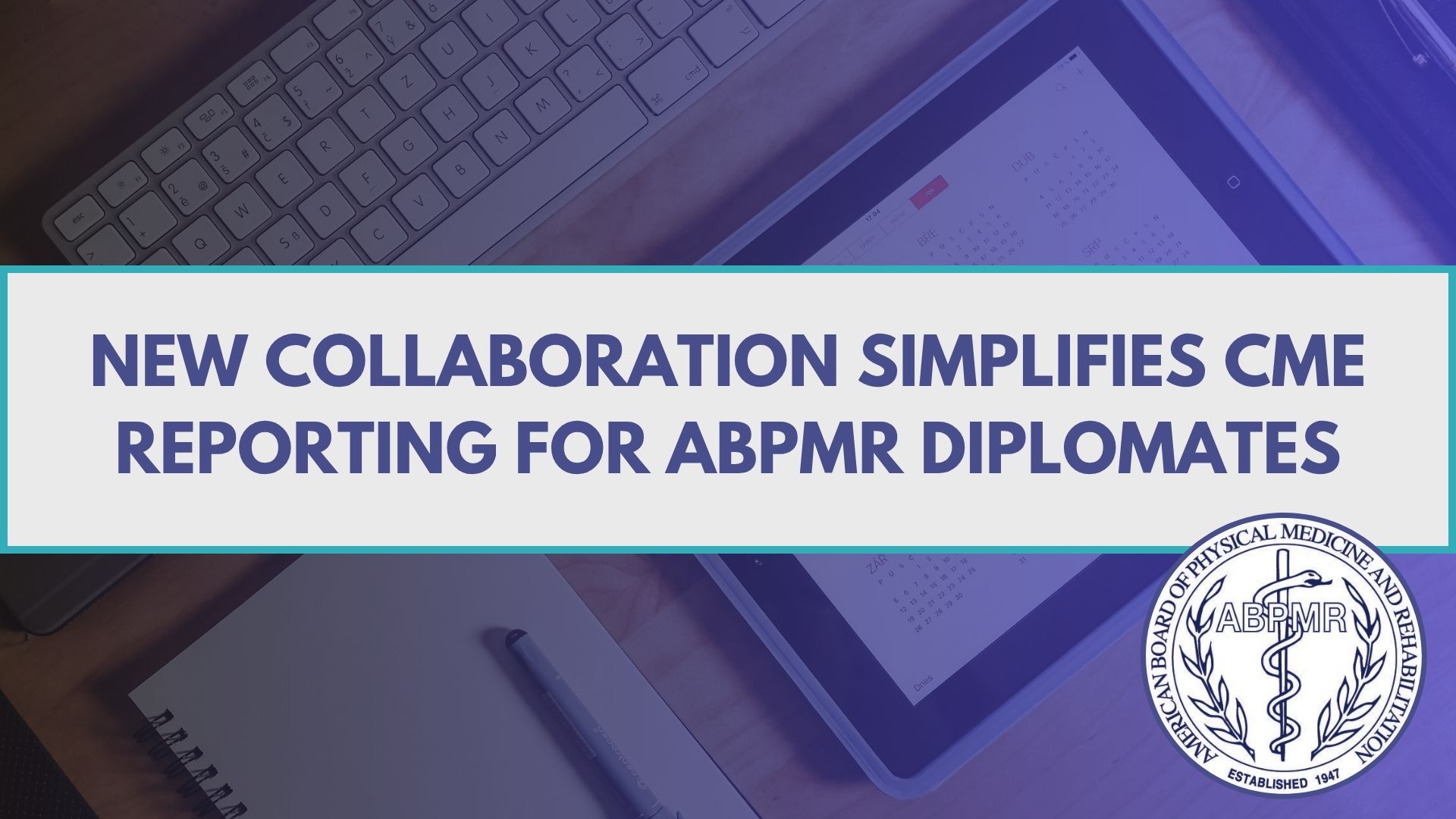CC
PIP Spotlight: Decreasing the Number of Postponed Procedures by Improving Pre-Visit Communication

May’s PIP Spotlight focuses on decreasing the rate of postponed procedures due to patients not holding anticoagulants (blood thinners) prior to their appointment. The PIP was submitted by Erika Cottrell, MD.
The PIP Spotlight is a periodic feature on News Center to highlight exemplary Practice Improvement Projects submitted by your fellow diplomates for Maintenance of Certification (MOC) Part IV credit.
Diplomates can use the PIP Spotlight as a tool to model additional PIPs on what you read here, or as a way to connect with other diplomates doing similar work.
Thanks for your submission, Dr. Cottrell!

What is the problem you are trying to solve?
I want to decrease the rate of procedure cancellations due to patients failing to hold their anticoagulant medications, which results in a procedure spot going empty, needing to reschedule, and overall inefficiency.
What data (objective measurements) do you have that supports this as a problem?
Data was recorded during the time period of June through August. In June there were five incidents of anticoagulant-related procedure cancellations, in July there were four incidents, and in August there were five incidents. The patients involved were taking either warfarin (Coumadin) or clopidogrel (Plavix).
What is your opportunity statement? State the goal you hope to achieve.
The goal is 100 percent compliance within a timeframe of six months with anticoagulation holds prior to procedures, or to have zero patients needing to be rescheduled due to not holding anticoagulants.
What is the underlying cause of the performance/quality problem?
Upon review, various causes were discovered. Some patients were not given instruction to avoid use of anticoagulants prior to the date of the procedure because their medication list was overlooked. Other patients were given instructions but forgot to adhere to them. At times, the date of the procedure was changed, causing the patient to become confused about when they were supposed to hold the medication. Some patients scheduled a procedure without a recent office visit and there wasn’t a procedure in place to question them about anticoagulant use.

What change(s) did you implement?
- We implemented a change to workflow in which our procedure schedule is now reviewed by the office nurse one week prior, and all patients who require a medication hold are contacted by phone with a reminder.
- We also implemented a change to scheduling workflow in which any procedure that is scheduled by the front office staff over the phone less than one week in advance is flagged. The patient’s information is then given to the office nurse for identification of anticoagulation holds, and the nurse calls the patient with anticoagulation hold instructions if needed.

Did you achieve your goal or target from your opportunity statement? What data do you have to support your conclusion?
Yes, goal was achieved by the 2nd month of implementation. In the month of September, one patient reported for a procedure without holding anticoagulants. In both October and November, we achieved 0 patients with anticoagulant-related cancellations.

Will you continue with the changes you have implemented?
Yes, the process will be continued as it doesn’t take much more time and has already had good results. In the future, we may widen the question parameters to include other factors that cause procedure cancellations, such as infection and ensuring the patient brings a driver with them.



